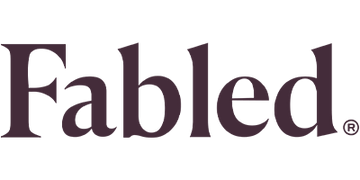
Self-Care Heroes: Our 3 Favorite Meditation Apps for Healthcare Workers
May is Meditation Month, and it’s a good opportunity for all healthcare workers to take a small step to explore their mind-body connections to relax and refocus. Meditation helps us harness the power of breath and concentration to lower anxiety and depression, improve things like self-esteem, performance, and sleep, and overall makes us happier, more peaceful people. Meditation for healthcare workers has never been more important: the stress level of healthcare workers’ professional lives is inherently high, and has only increased in the last year or so due to the pandemic — as evidenced by the reporting that healthcare workers are experiencing burnout at a higher rate. Of course, nothing takes the place of crucial and necessary structural changes to alleviate healthcare workers’ chronic stress, but anyone can benefit from the relaxing effects of a consistent meditation practice.
There are many different types of meditation:
- Introductory courses for newbies
- Transcendental meditation
- Live online classes
- Purpose-focused meditations that help with things like anxiety, depression, trouble sleeping, gratitude, and happiness
- Meditations that enhance performance and sharpen your mind
It can be intimidating or hard to find time to get into meditation, so we’ve pulled together our favorite approachable yet effective options for meditation for healthcare professionals.
Finding the time to meditate is perhaps the biggest roadblock — we’ve discovered a really effective way to stay accountable to your meditation practice is to combine it with an exercise regimen. Whether you do quick meditation to transition from whatever you were just doing to exercise, or pop on a meditation course post-workout (ideally while you’re stretching), combining the two together is a restorative one-two punch. For Peloton devotees, hop right off the bike or treadmill and pop on a Peloton meditation course (many are just a few minutes) while you stretch it out. If you’re exercising outside, wind down and walk to a meditation to recenter and maximize all those good endorphins with a quick meditation track.
If you have trouble transitioning to sleep, you need to check out Calm app’s Sleep Story series right away — narrated by familiar voices like Harry Styles, Mandy Moore, and Idris Elba, Sleep Stories are guided and relaxing, giving you something soothing to focus on that takes you away from the stressors of your day. It’s our absolute favorite meditation app for sleep. It can be hard to just sit down after a hectic day and relax, but Calm’s Sleep Stories gently transport you to a peaceful state of mind. Pro tip: Calm is Fabled founder Dr. Lemberg's overall favorite meditation app out there. She discovered it post-residency and it has played a huge part in helping her sharpen her reframing skills and deepen self-compassion. And bonus: it has resources for kids and makes a great gift for loved ones!
Anyone motivated by coursework and assignments will love Headspace’s courses (over-achievers, we’re talking to you). Headspace is a great meditation app for anxiety and for anyone looking to understand the mechanics of meditation. Their courses provide real-time context about how your mind works, where it tends to go, the mind-body connection, and how to use meditation to reach your goals, whether that’s just to relax, manage chronic anxiety, combat body dysmorphia, digest grief and so much more. We specifically love:
- The Meditation 101 Course: Headspace’s go-to beginners course is a 10-day pack that explores the essentials of meditation — and it’s free.
- 30-Day Managing Anxiety Pack: This collection guides you on how to cope with social anxiety, frame your thoughts differently and stop the negative cycle of anxious thoughts.
- 30-Day Navigating Change Pack: This 30-day collection prepares your mind for a greater sense of flexibility that allows you to get more comfortable with change — especially in the U.S., as we navigate the end of stay-at-home and capacity orders and return to not total normalcy, but something close to it.
Meditation is hands down one of the most transformative and essential skills for a healthcare professional to learn. You don’t have to be an expert at it to start seeing positive changes, but consistency is key. That’s why it’s worthwhile to spend some time thinking about which kind of meditation you could realistically incorporate into your busy life. It’s a difficult time to be in healthcare — from the whole team at Fabled, please take some time for you. You are worth it.



